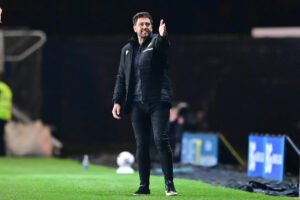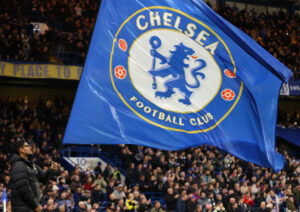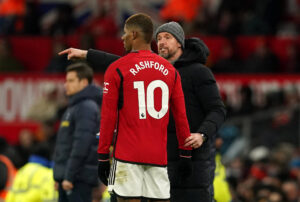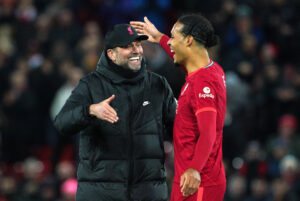Welcome to Last Word on Footballs ‘Returning Players’ Series. In this edition, we take a look at former striker Wayne Rooney.
Rooney joined the Everton youth team aged nine and made his professional debut for the club just seven years later as a 16-year-old. He famously scored a winning goal against Arsenal and netted a total of 17 goals in 77 appearances before a move to Manchester United.
Although he spent most of his hugely successful career at Old Trafford, England’s record-breaking goalscorer came home in 2017 and added a further 11 goals from 40 appearances for the Toffees.
Returning Players – Wayne Rooney
First Spell at Club
Rooney came through the academy at Everton but it didn’t take long for the Croxteth born striker to make a name for himself in the senior set up.
His senior debut came in a 2-2 draw against Tottenham Hotspur, making him the second-youngest Everton debutant. Rooney started the game and provided an assist.
His first goals came six weeks later as the 16-year-old became the clubs youngest ever scorer after netting a brace against Wrexham in the League Cup. A few weeks later, Rooney opened his Premier League account with an unforgettable last-minute winner against Arsenal. Not only did the goal end the Gunners’ 30-game unbeaten run, but it also made him the youngest Premier League goalscorer at the time. 15 days later, the now 17-year-old netted the games only goal in a 1-0 win over Leeds United.
Rooney was named BBC Young Sports Personality of the Year in December 2002, before scoring the winner in a 2-1 win over Blackburn Rovers. By January, Rooney penned his first professional contract.
Goals against Arsenal, Newcastle United and Aston Villa followed as he ended his debut campaign with eight goals from 37 appearances.
The following season, Rooney opened his account in a 2-2 against Charlton Athletic in August but had to wait until December before adding to his tally in games against Portsmouth, Leicester City and Birmingham City, with the latter on his 50th Toffees appearance.
Rooney netted his first brace in a 3-3 draw at Southampton before netting in the reverse fixtures against Pompey and Leicester. His last goal of the season, and his final Everton goal before his return 14 years later, came against Leeds. He ended the campaign with nine club goals from 40 outings.
Teams That Rooney Played for in Between
Rooney only played for Manchester United before his return to Goodison Park in 2017, but he spent 14 years, broke records and won several accolades during his tenure at Old Trafford.
The youngster had handed in a transfer request at Everton, despite being offered a £50,000 per week contract. The club rejected a £20 million offer from Newcastle before accepting a bid in excess of £25 million from the Red Devils. At the time, it was the highest ever fee paid for a teenager.
Rooney had a debut to remember. The 18-year-old laid on an assist and scored a sensational hat-trick as Manchester United eased past Fenerbahce in the Champions League. The trio of goals also meant that Rooney had become the youngest player to score three in one game in the competition.
Despite not winning any silverware in his first season at Manchester United, Rooney ended the campaign as the club’s top scorer in the Premier League with 11 goals, adding 17 in all competitions.
His first trophy was the League Cup in 2005/06 and he netted twice in the 4-0 final win over Wigan Athletic. The Red Devils finished second in the league but Rooney ended the campaign with 16 Premier League.
Rooney netted a hat-trick against Bolton Wanderers and ended the campaign with 23 goals in all competitions as Manchester United secured the league title – the first of five Premier League titles that Rooney lifted at Old Trafford.
After winning his first Premier League title, the Red Devils won the next two in succession. The 2007/08 season also brought Rooney’s one and only Champions League success as Manchester United overcome Chelsea on penalties in the final in Istanbul.
In October 2008, Rooney became the youngest player to reach 200 Premier League appearances. Although Manchester United secured a third successive league title, they missed out in the Champions League final after losing to Barcelona in the final in Rome.
Rooney scored four times in the same game for the first time in his senior career during a 4-0 win over Hull City in January 2010. Four days later and Rooney scored the winning goal against Manchester rivals City to progress to the League Cup final. Four days after that, the striker netted his 100th Premier League goal in a 3-1 win at Arsenal. Rooney also scored the winner in the League Cup final against Aston Villa.
The following season, Rooney added a further 16 goals in all competitions but his best was one of his 11 Premier League strikes – netting a bicycle kick and winning goal against Manchester City. He also netted a hat-trick as the Red Devils came from two goals down to beat West Ham United 4-2. His second goal was his 100th in the top flight. Manchester United won the league that season with Rooney taking his fourth Premier League title in just five seasons.
The following season, Rooney netted a hat-trick as the Red Devils beat Arsenal 8-2, with the first goal his 150th for the club. He scored another trio in United’s next game – a 5-0 win over Bolton. Rooney netted twice in a 3-2 win over Manchester City in the League Cup before marking his 500th senior career appearance with a brace against Liverpool. The goals kept coming – Rooney netted a career-best 27 Premier League goals, with 34 in all competitions.
A final Premier League title came in 2012/13. Rooney ended the campaign with 12 league goals and scored braces against Stoke, Reading, Manchester City and Southampton en route to the title.
Despite handing in a transfer request, Rooney remained at Old Trafford. Sir Alex Ferguson retired and was replaced by Rooney’s former Everton boss, David Moyes. Rooney netted his 200th goal against Bayer Leverkusen in the Champions League. He ended the season as the club’s top scorer in the league with 17 and led the charts with ten assists.
Another change of manager followed as Louis van Gaal replaced Moyes. Rooney was made captain by the Dutchman. In September 2014, Rooney became the Premier League’s third-highest goalscorer after scoring in a win over West Ham.
A goal in a win over Swansea City in January 2016 lifted Rooney to second in the all-time top goalscorers in the Premier League. Rooney then captained the side in a 2-1 FA Cup final victory over Crystal Palace – his only success in the competition.
The following season, Rooney became just the third player in the Premier League to reach 100 assists before overtaking Ruud van Nistelrooy’s club record of 39 goals in Europe. He equalled Sir Bobby Charlton’s record of being the club’s top scorer with an FA Cup goal against Reading before overtaking the World Cup winner with a late free-kick in a draw against Stoke. His final game for the club came in the 2016/17 Europa League final, which United won.
He ended his time at Old Trafford with a club record 253 goals in just 559 appearances. He won five Premier League titles, one FA Cup, three League Cups, four Community Shields, one Champions League, one Europa League and one Club World Cup. He also broke England’s record of top scorer after getting 53 goals during his Manchester United tenure.
Return to Everton
Rooney was allowed to leave the club on a free transfer and he made a sensational return to Goodison Park and Everton. He made his second debut in a Europa League third qualifying round against MFK Ružomberok, and scored on his second Everton league debut in a 1-0 win over Stoke.
He scored his 200th Premier League goal in a 1-1 draw against Manchester City before adding a hat-trick against West Ham, with the third from inside his own half.
Despite signing a two-year deal, Rooney departed after just one season before joining D.C United in the MLS. He ended his Everton tenure with a total of 28 goals in 107 appearances.
Main Photo






